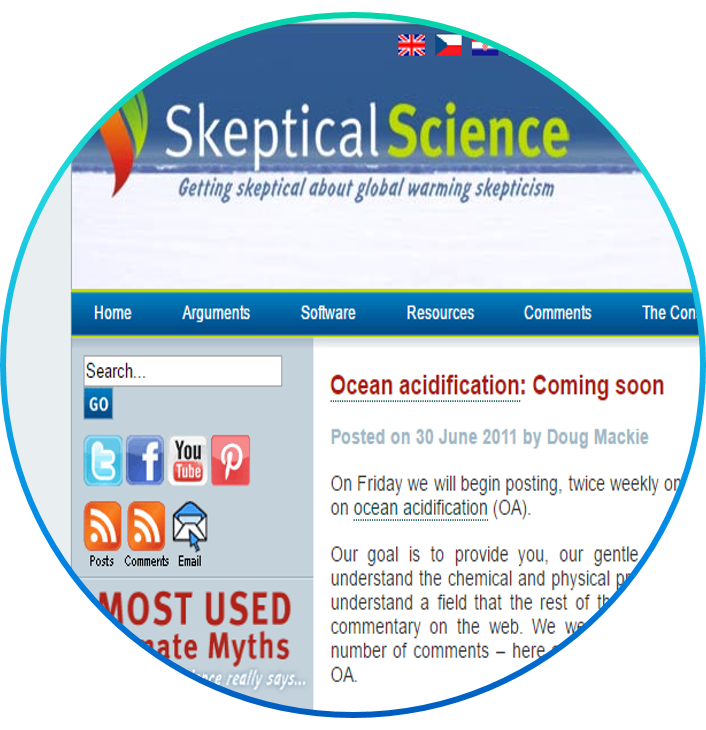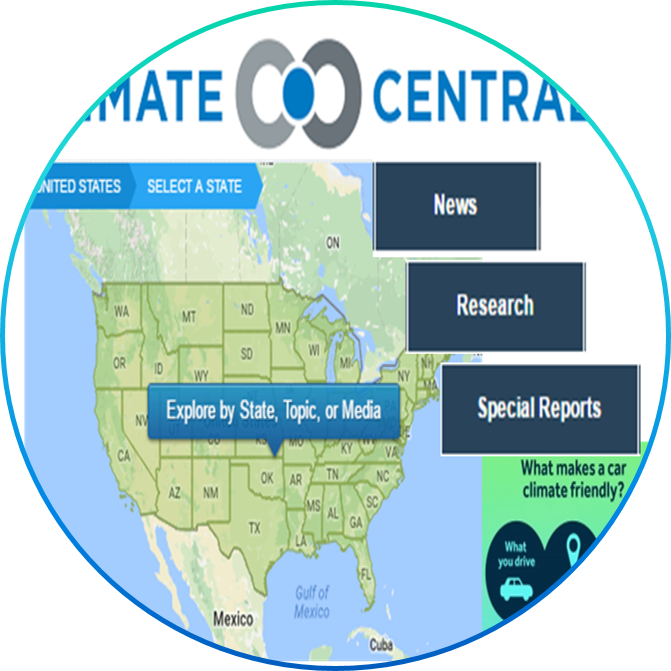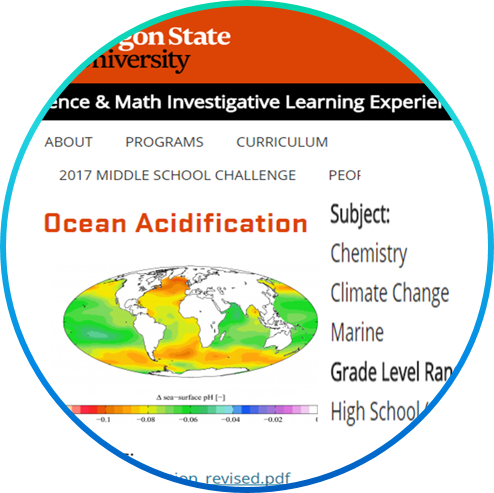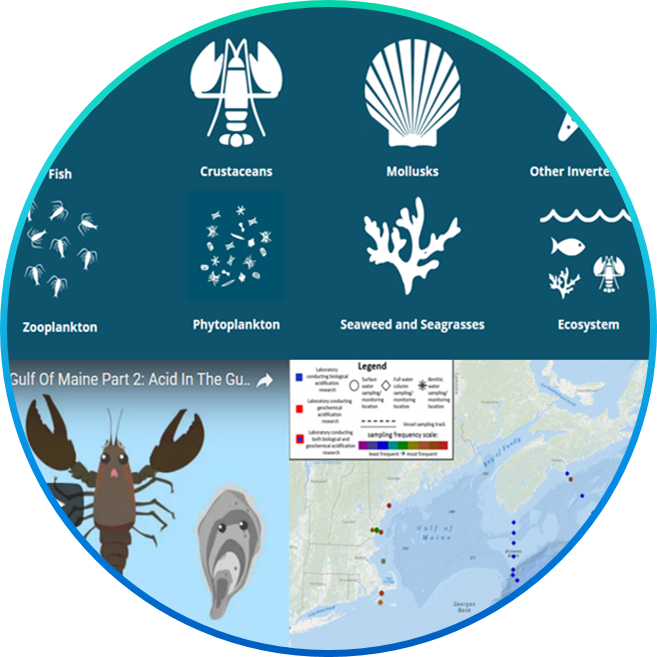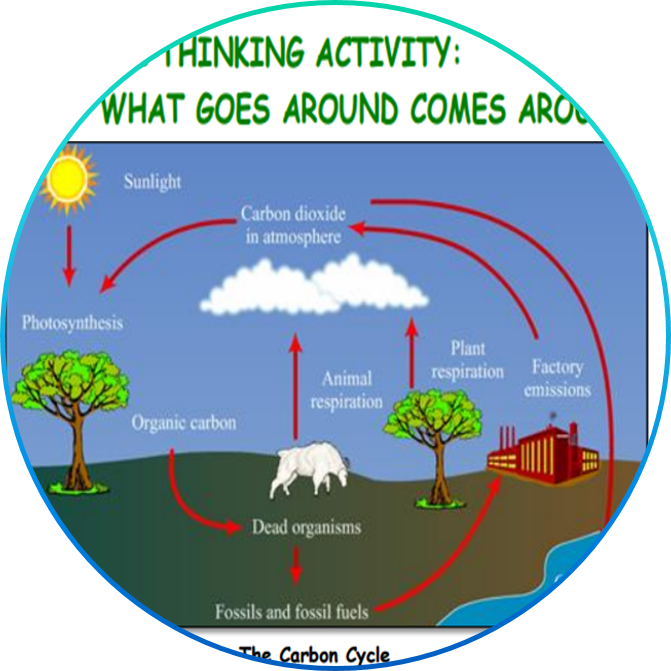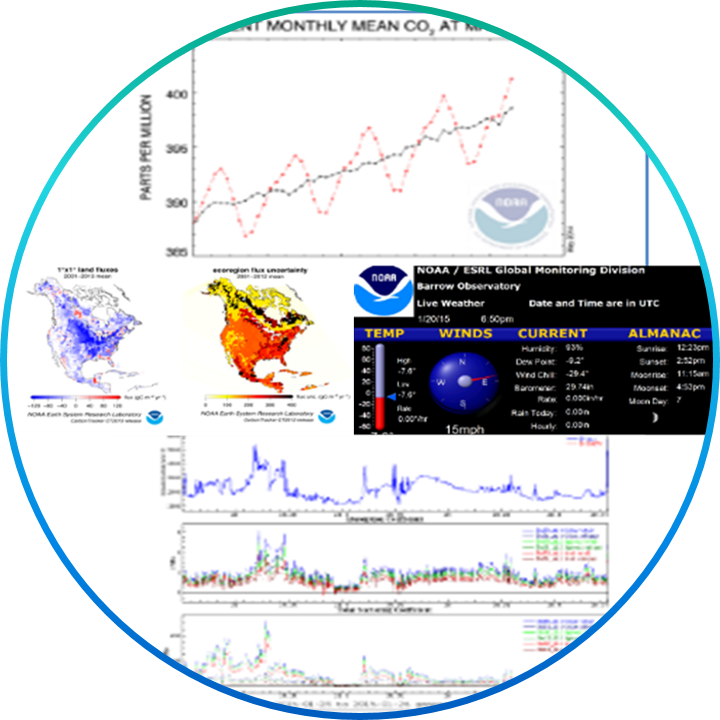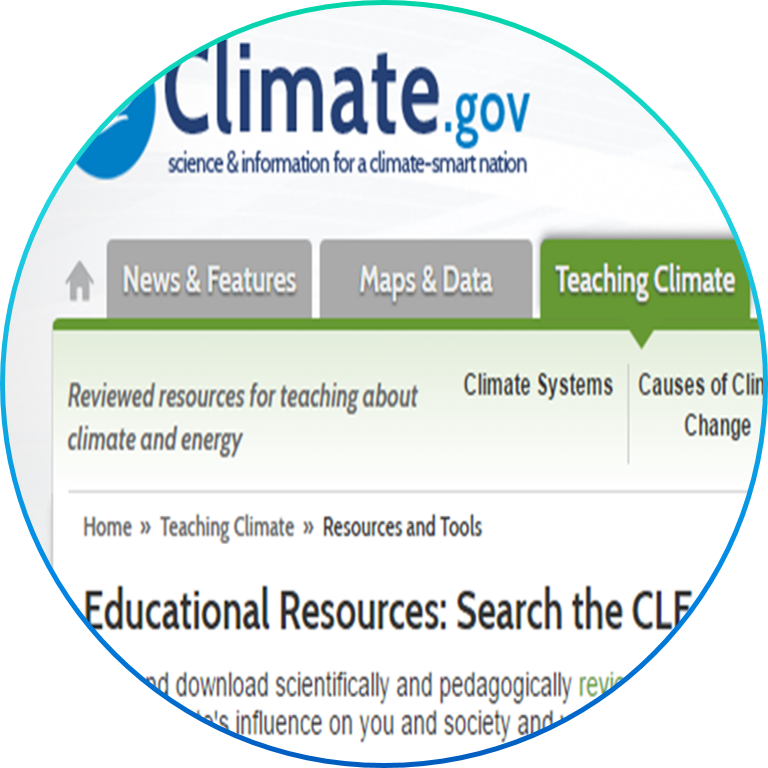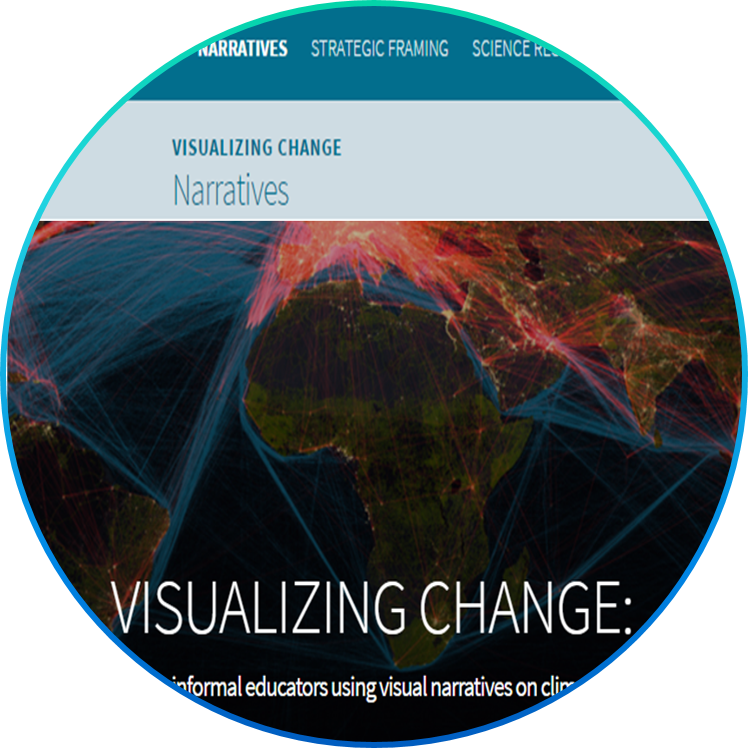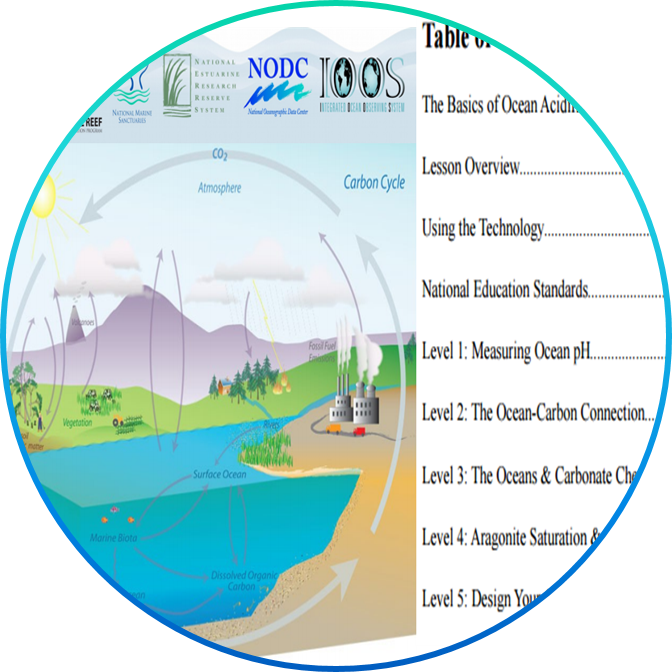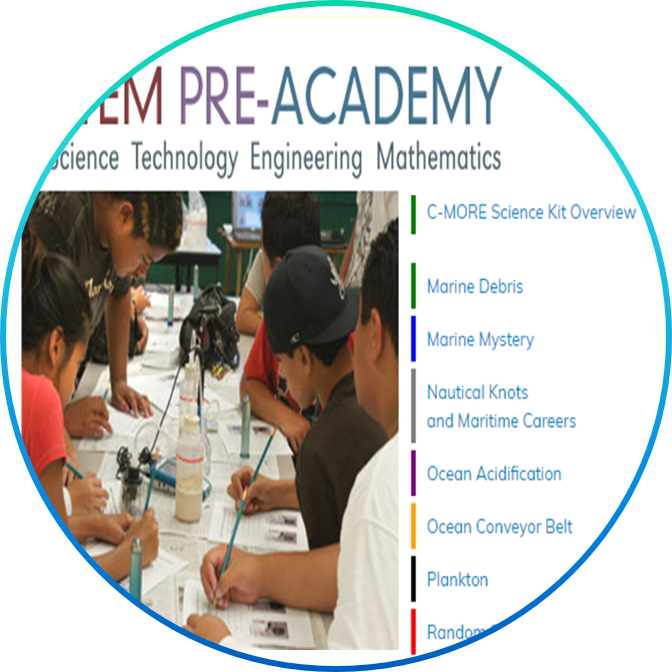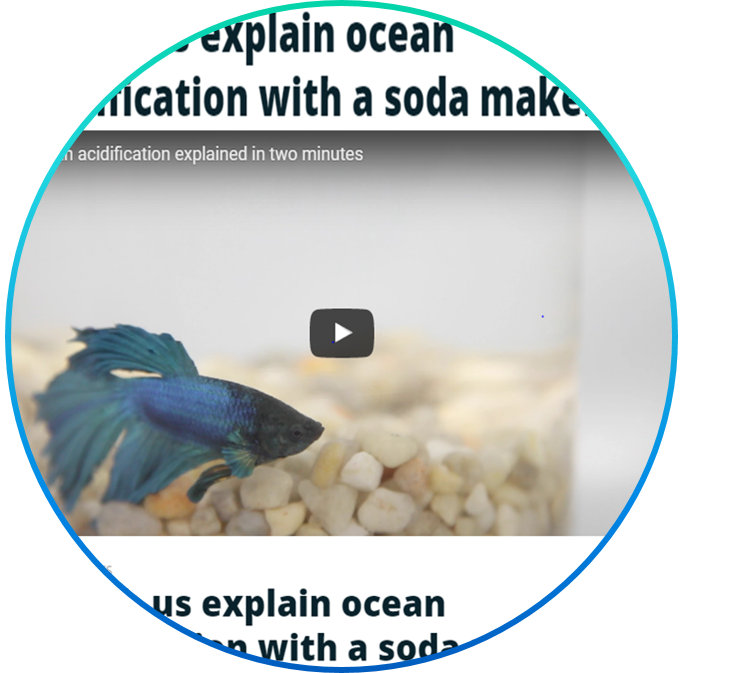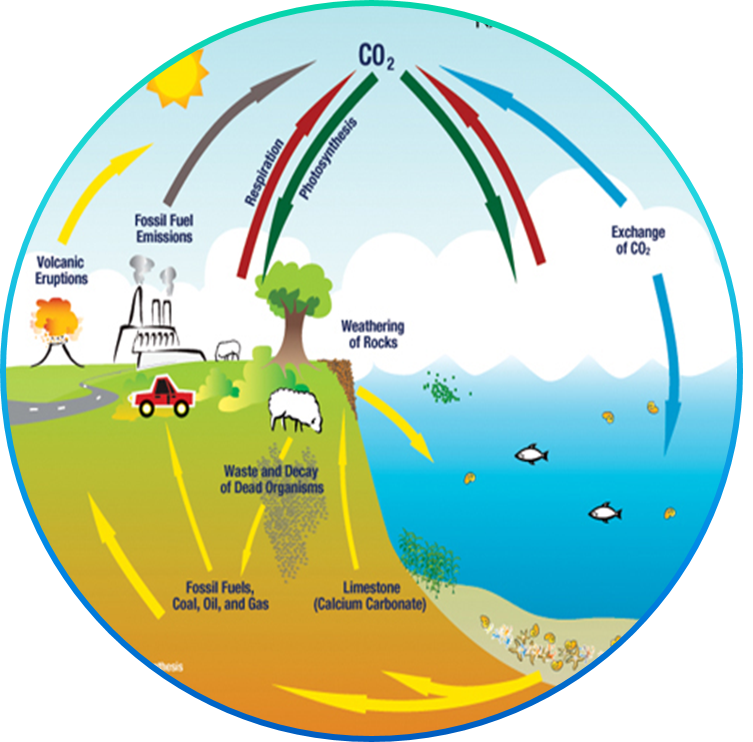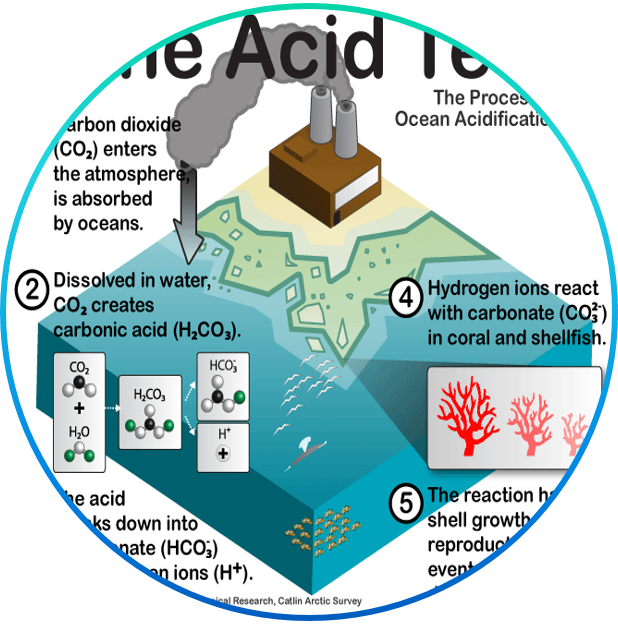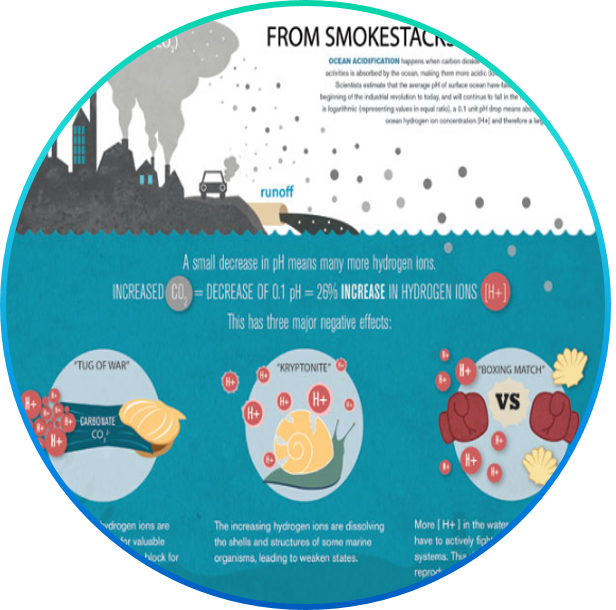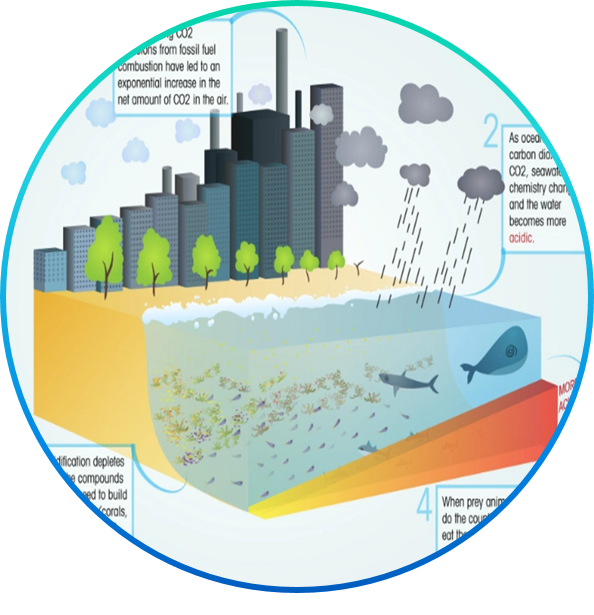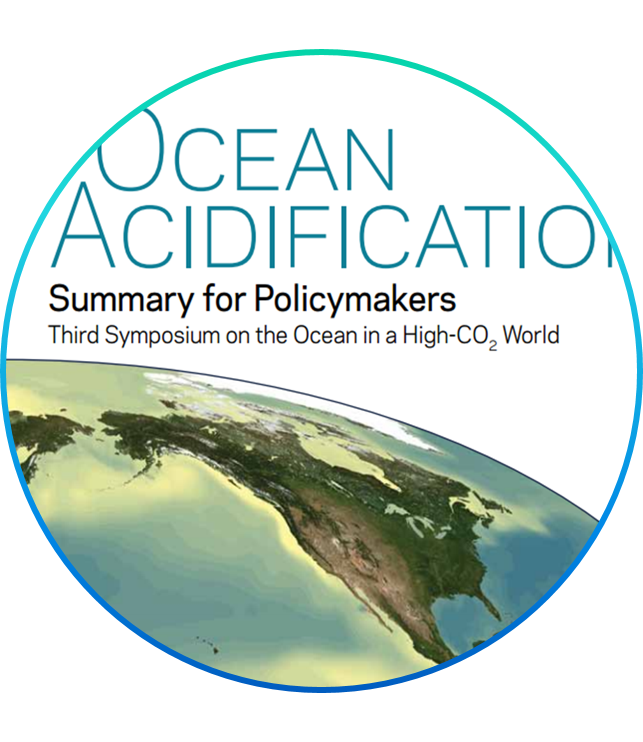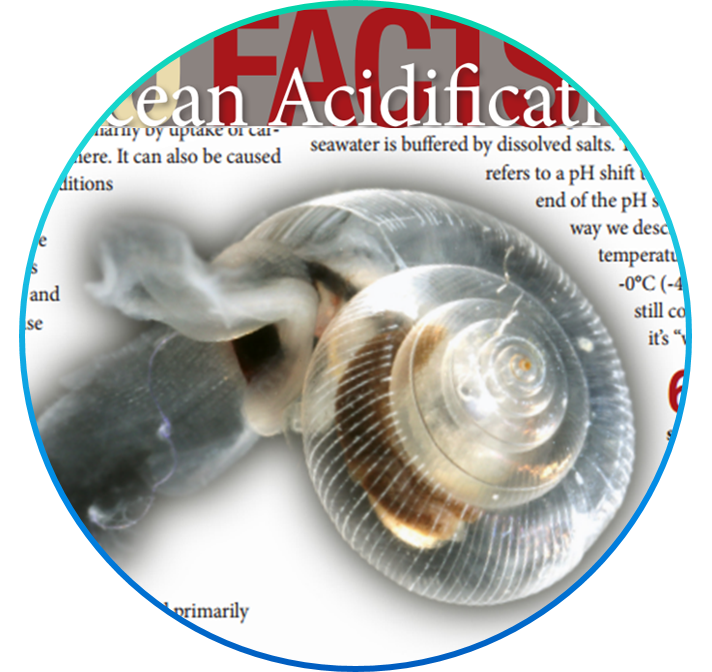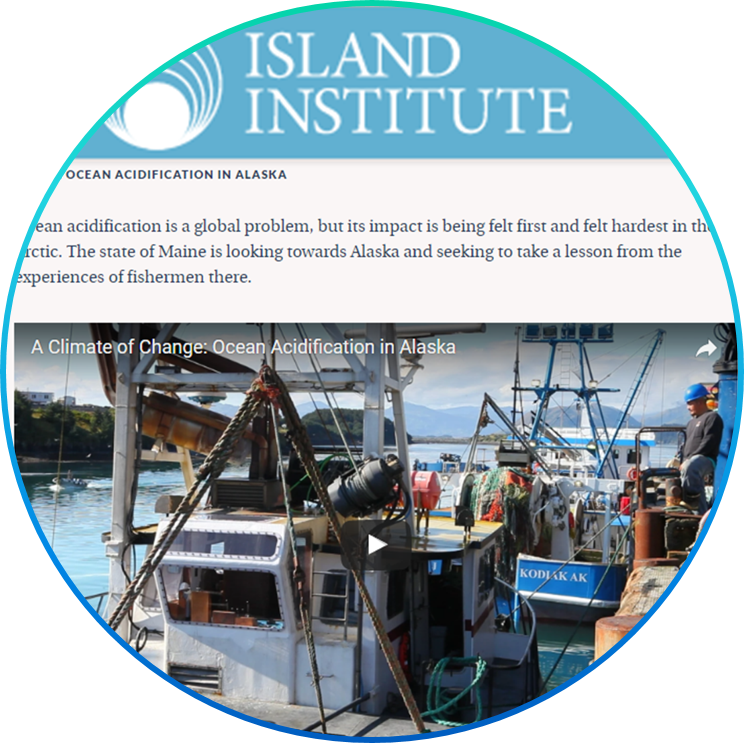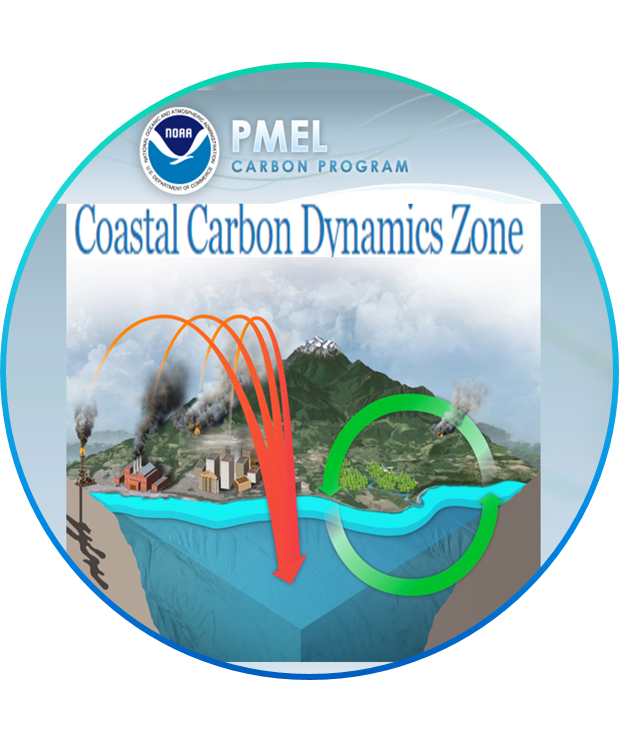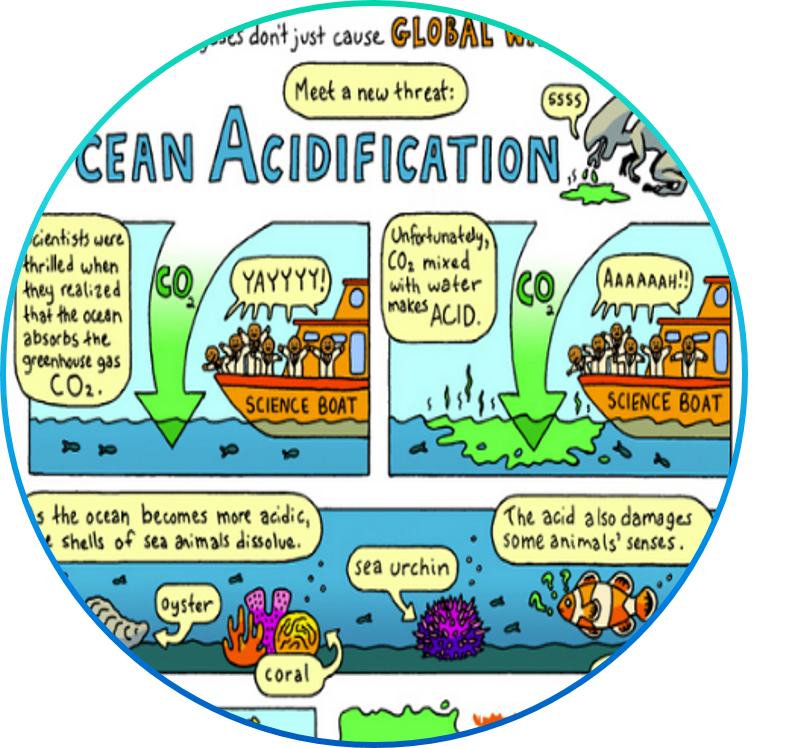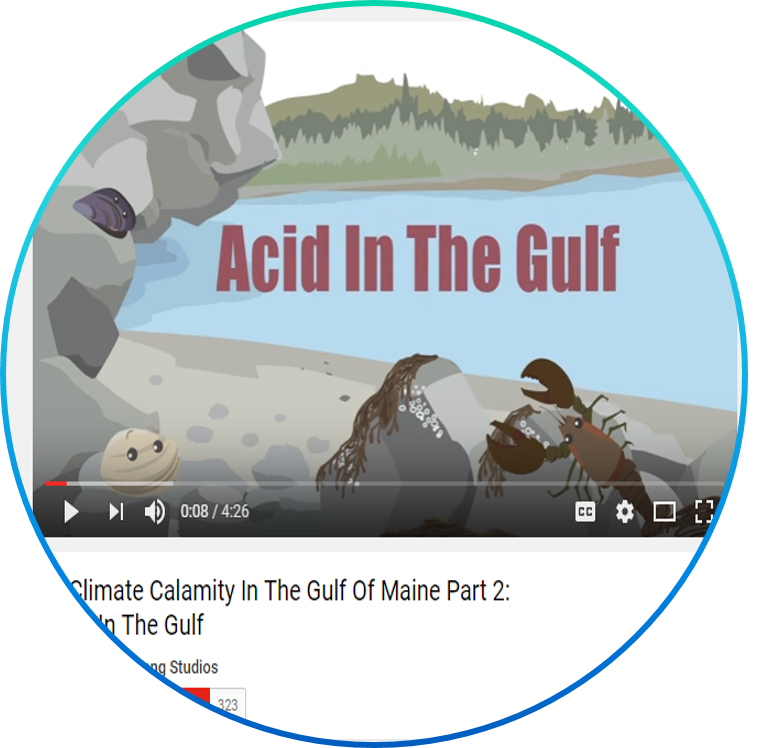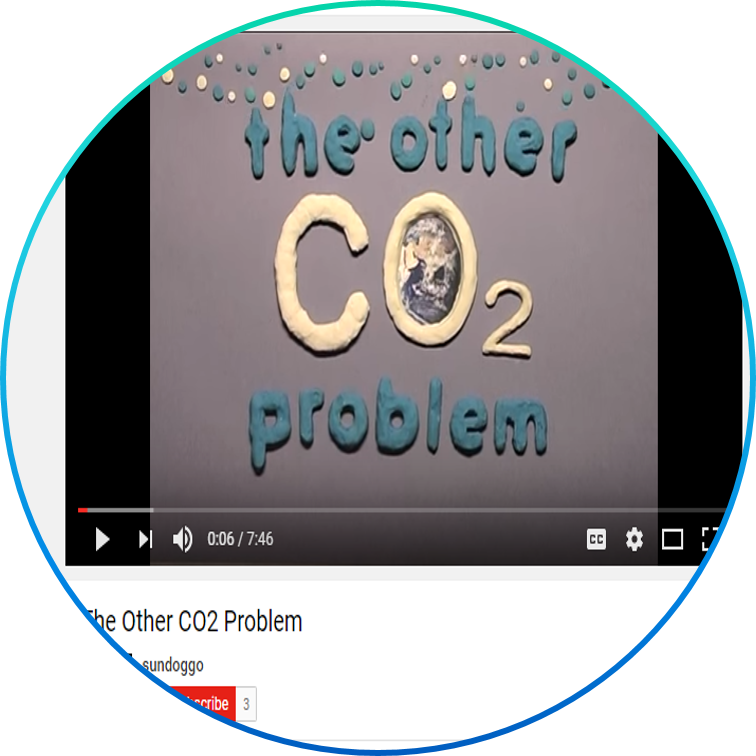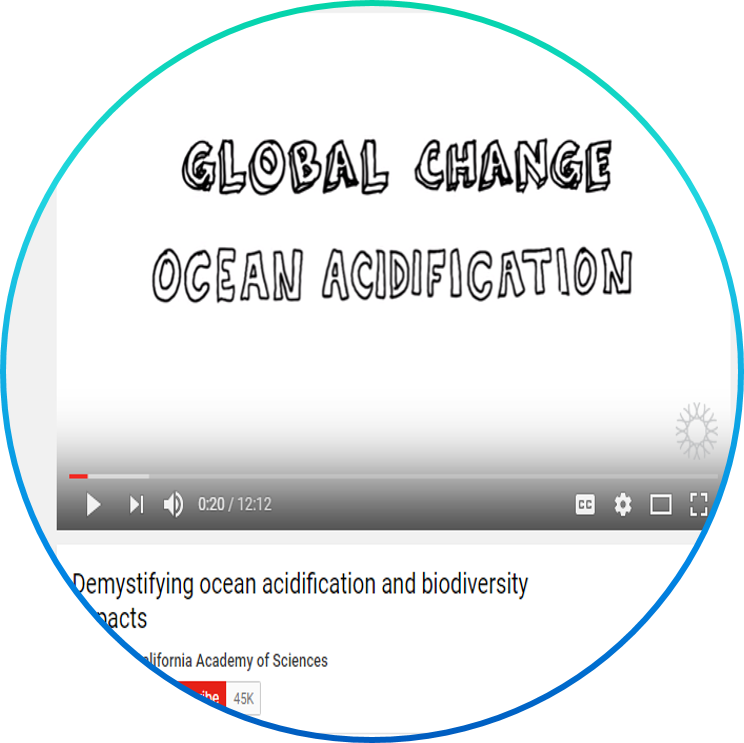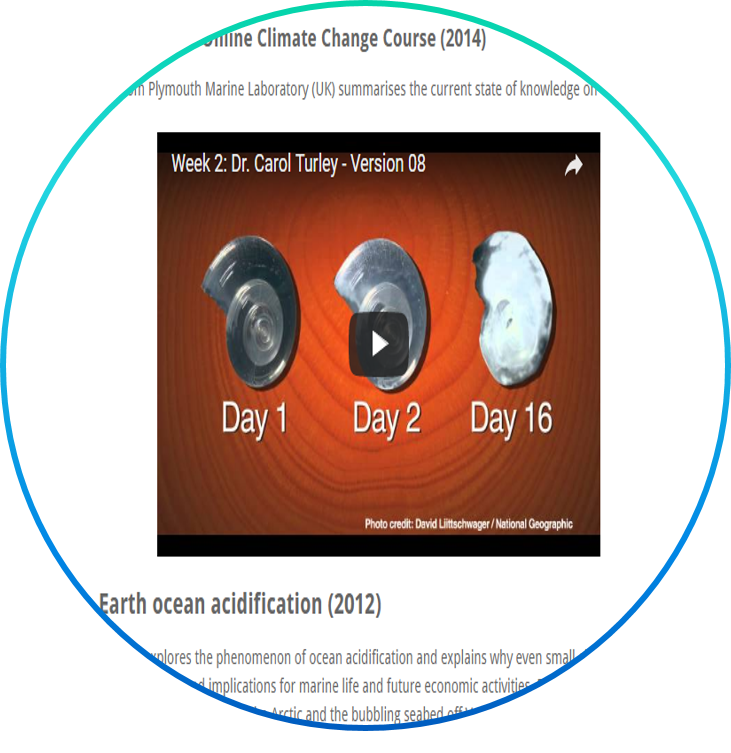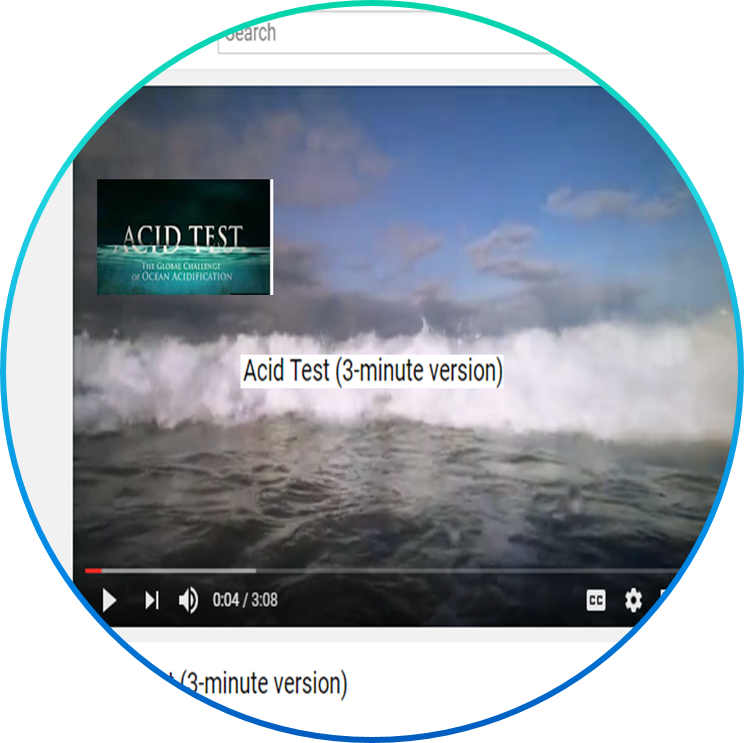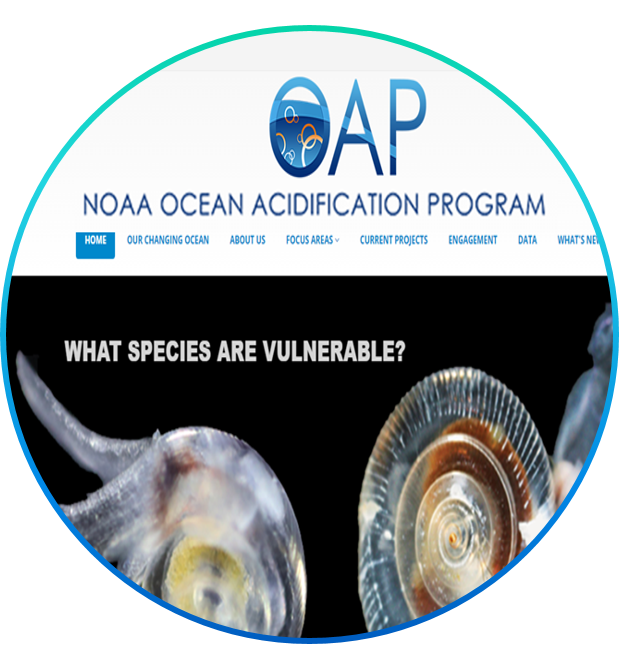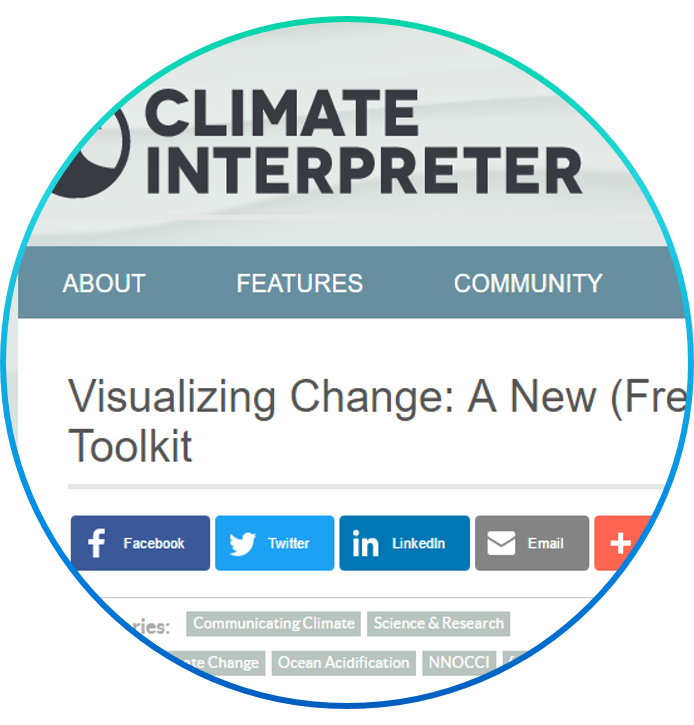Education & Outreach Working Group
The Education & Outreach (E&O) Working Group provides a collaborative platform for ocean and coastal acidification (OCA) educators to inform each other and their community about OCA. Additionally, the E&O WG provides educational resources to stakeholders by working closely with the other NECAN Working Groups; and in the future plans to develop resources for other stakeholder groups, such as citizen science monitoring groups. A compilation of OCA resources have been included below.
If you're interested in participating in or learning more about the E&O Working Group please contact the NECAN Coordinator, Austin Pugh, at austin@neracoos.org.
Educational Resources
Shell Day - A Monitoring Blitz for Coastal Acidification
A single-day monitoring event, Shell Day, took place on August 22, 2019. NECAN partnered with citizen science groups to organize this monitoring blitz that will generate a snapshot of coastal conditions from Maine to Long Island Sound. This event will help to better understand the drivers os coastal acidification in the Northeast. Please visit the Shell Day page for more information.
Ocean Acidification Background and Activities for Educators:
|
Provides background on the chemical and physical processes behind OA to better understand the field of study and also to evaluate the commentary on the web based on misconceptions. |
An independent organization of scientists who surveys and conducts scientific research on climate change and informs the public of key findings. |
Oregon State University Science & Math Investigative Learning Experiences 28 links to OA Curriculum and Activities for grades 4-12 |
|
NOAA Educational Resources on Ocean Acidification: Search the CLEAN Collection Download 21 scientifically and pedagogically reviewed digital ocean acidification resources for teaching about climate's influence on you and society and your influence on climate. |
VISUALIZING CHANGE: A toolkit for informal educators using visual narratives on climate change These materials are part of a collaborative effort to expand the resources and training available to informal science educators to translate climate science for the American public. Ocean Acidification: The resources in this toolkit will allow communicators to effectively communicate ocean acidification using strategically framed visuals and narratives. Watch the video to see it in action! Partners: Aquarium of the Pacific, Buttonwood Park Zoo, Exploratorium, Frameworks Institute, National Aquarium, New England Aquarium, New Knowledge, Seattle Aquarium |
Ocean Acidification Teacher’s Guide (60pgs) This curriculum module was developed for the NOAA Ocean Data Education (NODE) Project by Caroline Joyce, Todd Viola and Andrew Amster in collaboration with the NOAA Coral Reef Conservation Program (http://coralreef.noaa.gov) and the National Oceanographic Data Center. This project has been made possible with support of the National Marine Sanctuary Foundation. Scientific and technical advice was provided by Dr. Joseph Salisbury, Assistant Research Professor at the University of New Hampshire. |
|
University of Hawai’i Stem Pre-AcademyC Ocean Acidification (Grades 6-12) with lesson plans, activities, etc. Can also request a kit with resources for the activities. |
Video (soda stream and Lil Dipper). |
Graphics & Documents:
| National Research Council CO2 Cycle | The Acid Test: Journal of Geophysical Research |
Effects of Ocean Acidification Info Graphic by Deanna Design Used to educate policy makers on Capitol Hill. |
| Infographic on OA by Nguyen Son Tra |
Ocean Acidification Summary for Policymakers Third symposium on the ocean in a high CO2 world (22 pgs). |
Socio-Economic Impacts of Ocean Acidification |
| Island Institute Infographic and Videos on OA |
Ocean Acidification: The Other Carbon Dioxide Problem NOAA Pacific Marine Environmental Laboratory. |
|
Greehouse Gases Don't Just Cause Global Warming: Meet a New Threat, Ocean Acidification Bird and Moon Science and Nature Cartoons. |
Videos:
|
A Climate Calamity in the Gulf of Maine Part 2: Acid in the Gulf Produced by O’Chang Studios, content developed and funded by Maine Sea Grant, Dalhousie University, MEOPAR (Marine Environmental Observation Prediction and Response Network), NERACOOS (The Northeastern Regional Association of Coastal Ocean Observing Systems) and NECAN (Northeast Coastal Acidification Network). |
Clay animation about the potentially disastrous rise in ocean acidity. Created by pupils from Ridgeway School Plymouth, Sundog Media, and Dr Carol Turley of Plymouth Marine Laboratory. Commissioned by EPOCA [European Project on Ocean Acidification]; supported by UCP Marjon, and National Marine Aquarium. |
Ocean Acidification by the Alliance for Climate Education Learn about how climate change is impacting our oceans. The Alliance for Climate Education is the nation's leader in climate science education and we're excited to present this short on ocean acidification. For more about ACE, visit us at http://acespace.org. |
|
|
|
|
|
Demystifying Ocean Acidification and Biodiversity Impacts California Academy of Sciences. Why are the oceans becoming more acidic and how does that threaten biodiversity? Human activities produce excessive carbon dioxide and much of it is absorbed by the oceans, where it is converted to an acid. |
International Geosphere-Biosphere Programme (IGBP). Bringing information on ocean acidification to scientists, policymakers and the public |
Natural Resources Defense Council. This groundbreaking NRDC documentary explores the startling phenomenon of ocean acidification, which may soon challenge marine life on a scale not seen for tens of millions of years. The film, featuring Sigourney Weaver, originally aired on Discovery Planet Green. |
Webinars:
|
|
|
|
Sharing Ocean Acdification Resources for Communicators & Educators (SOARCE) This webinar series provides ocean acidification communication tools to formal & informal educators, and stakeholders across the country. One of its primary goals, is to promote a more integrated and effective ocean acidification education community by sharing ocean acidification education and communication activities virtually. With awareness of and access to these resources, the ocean acidification education and communication community will be able to utilize and continue to create cutting edge communication tools that incorporate current scientific and communication research. |
This new webinar series provides ocean acidification communication tools to formal & informal educators, and stakeholders across the country. One of its primary goals, is to promote a more integrated and effective ocean acidification education community by sharing ocean acidification education and communication activities virtually. With awareness of and access to these resources, the ocean acidification education and communication community will be able to utilize and continue to create cutting edge communication tools that incorporate current scientific and communication research. |






